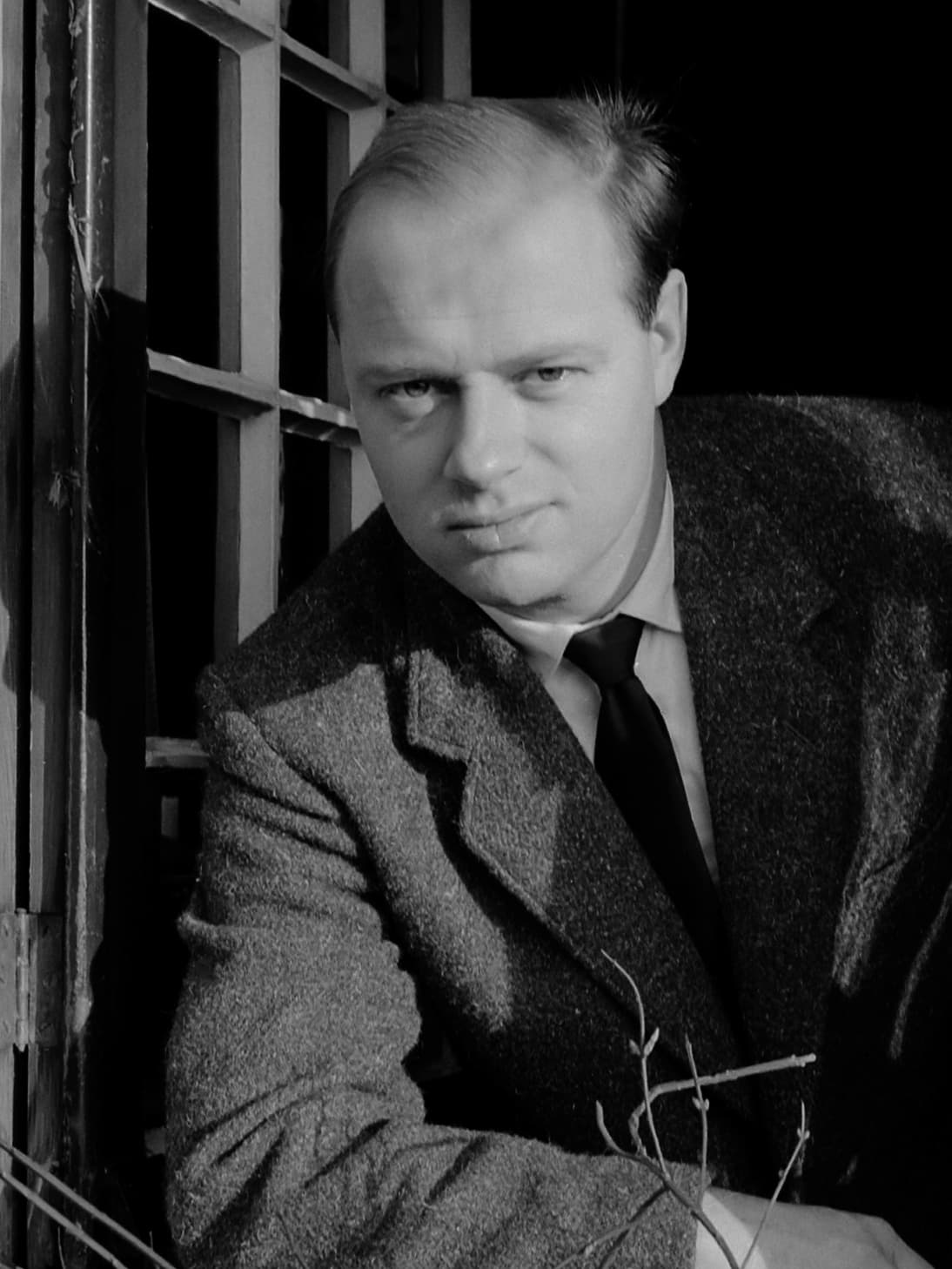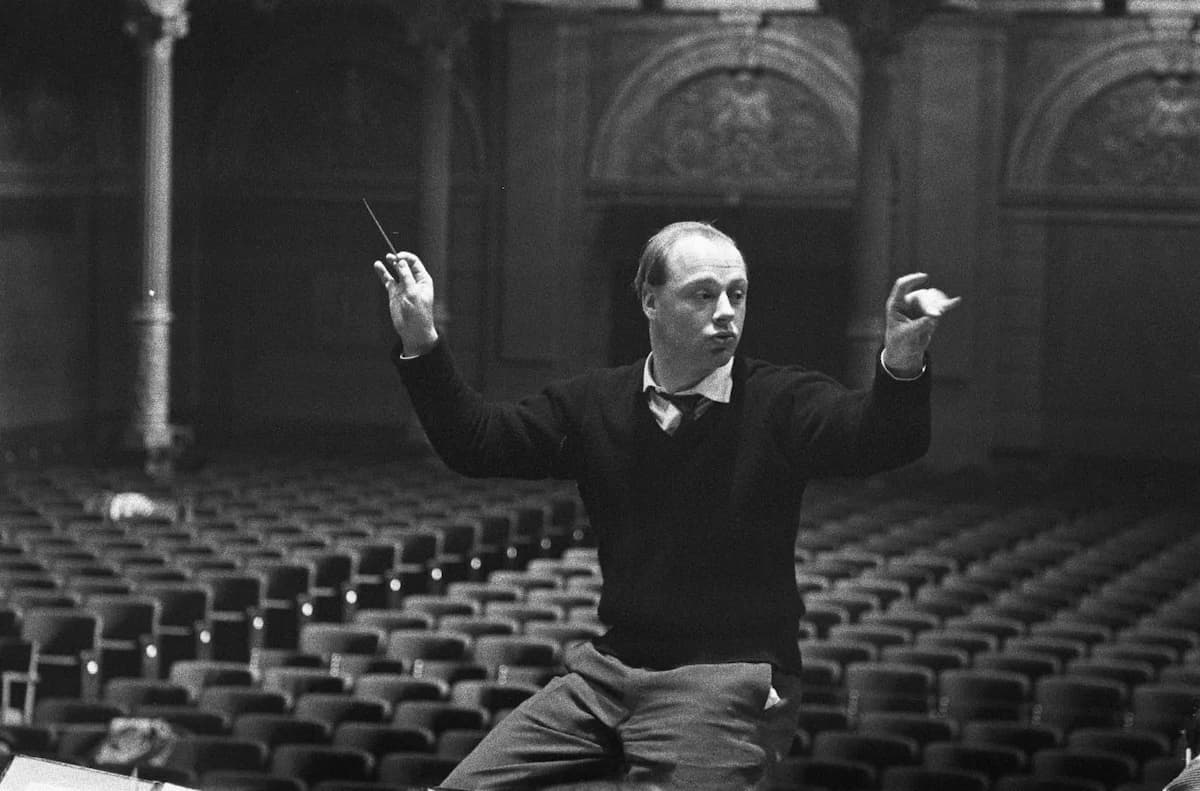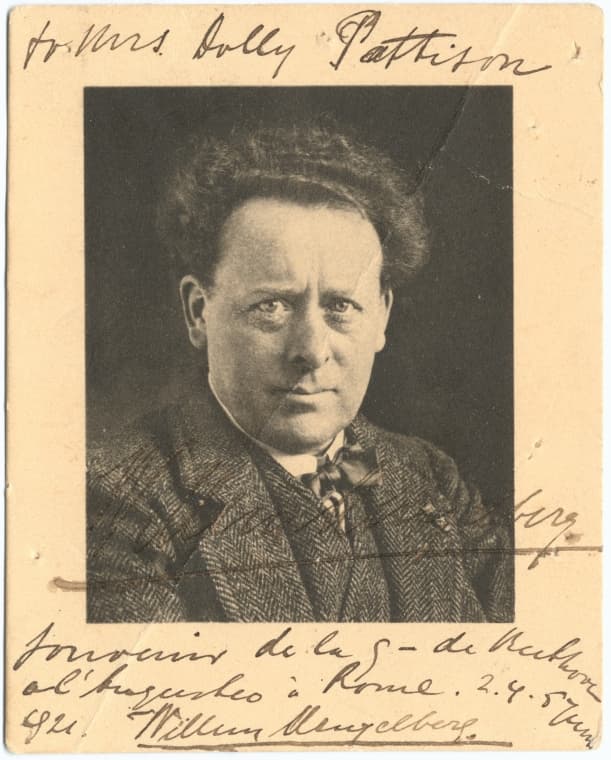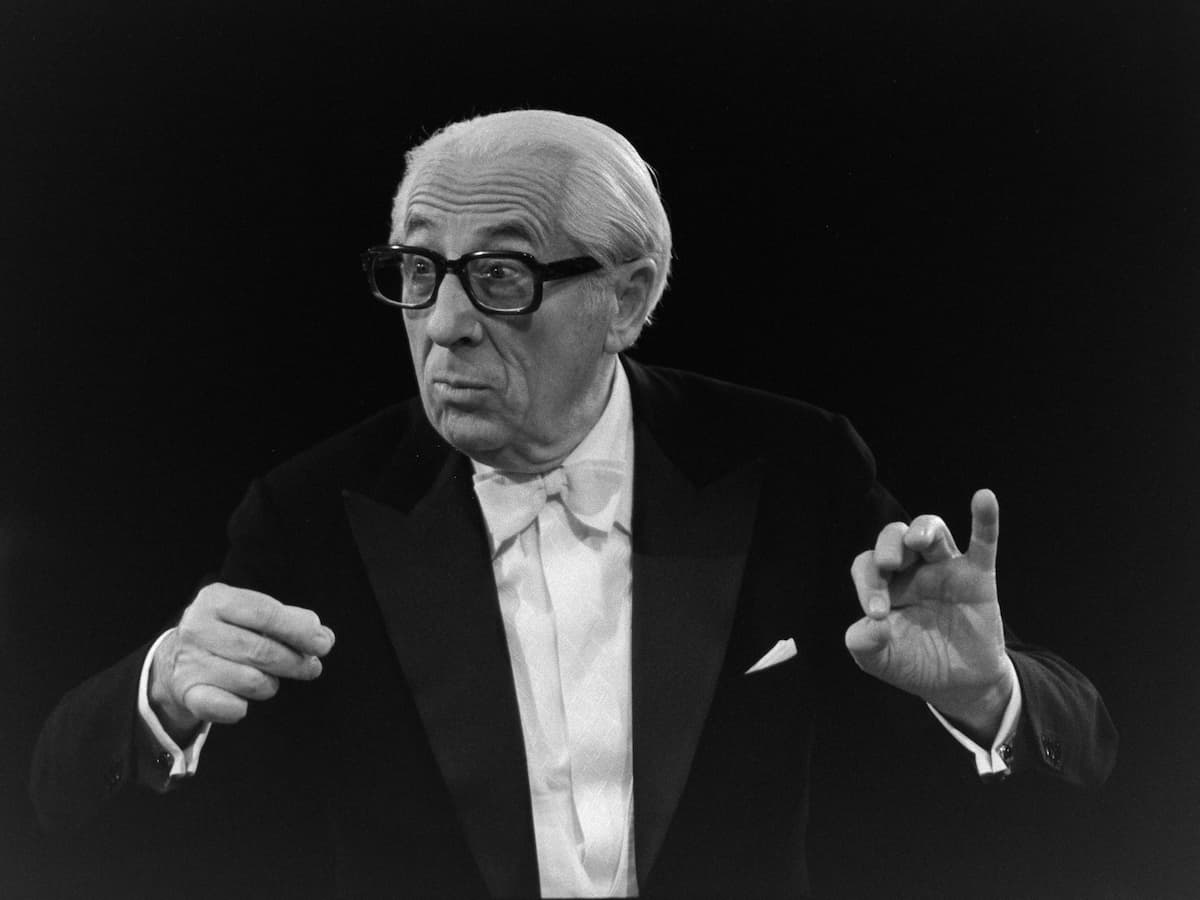Born in Amsterdam on 4 March 1929, conductor Bernard Haitink imparted an uncommon strength of character and conviction to the players. Undemonstrative in performance, his restrained demeanour was the result of his intensive study of the scores even before rehearsal. He never saw an opera as a child nor conducted one until he was past forty, but he was transfixed by the sound of the Concertgebouw Orchestra from the age of nine.
Bernard Haitink Conducts Mahler’s Symphony No. 3 (excerpts)
Childhood and Ancestry

Bernard Haitink in 1959
Haitink rarely talks about his boyhood or himself. As he explained in an interview, “I always shield myself.” He was the son of Anna (née Verschaffelt), who worked for the French language institution Alliance Française, and Willem Haitink, a civil servant who was to become director of the Netherlands electricity board. As he explained, “my parents were hardly musical at all, though sympathetic to music.”
The family lived only 500 yards from the Concertgebouw Hall, and at the age of nine, young Bernard asked his parents if he could learn the violin. According to Haitink, he saw a friend carrying a violin case and wanted one himself. His parents agreed and hired the best possible teacher, a member of the Concertgebouw Orchestra.
Anton Bruckner: Symphony No. 7 in E Major, WAB 107 (1885 version, ed. L. Nowak) – III. Scherzo: Sehr schnell (Bavarian Radio Symphony Orchestra; Bernard Haitink, cond.)
Concertgebouw Hall

Bernard Haitink in 1960
Living that close to a famous concert hall, it was only a matter of time before the boy attended a performance. As he remembers, during his first visit, he was able to hear Bach’s St Matthew Passion. Haitink was an exceedingly shy child, but astonishingly, he went to the concert on his own.
He really did not want to go, but his teacher ordered him to attend and hear the great Willem Mengelberg. Haitink took away two distinct memories from that event. He recalled the violin solo in “Erbarme dich mein Gott,” and a woman next to him who cried. According to Haitink, he was not really excited, “but he was impressed.”
Bernard Haitink Conducts Debussy’s La Mer
Willem Mengelsberg

Willem Mengelberg
His first orchestral concert a short time later made a completely different impression. He remembers it was a Thursday subscription concert, and Mengelberg was conducting Tchaikovsky’s Pathetique Symphony. He vividly recalled the small and compact figure of the conductor, and from that very moment on, he became a music addict.
He searched and found a number of miniature scores, and illicitly tuned in to radio broadcasts of the Proms, listening to conductors Henry Wood and Adrian Boult. He entered the Amsterdam Conservatoire studying the violin and conducting with Felix Hupka, and he experienced German occupation during his teenage years. His father was imprisoned for over three months, but Bernard continued to attend concerts, always on his own.
Pyotr Ilyich Tchaikovsky: Symphony No. 6 in B Minor, Op. 74, “Pathétique” – IV. Finale: Adagio lamentoso (Royal Concertgebouw Orchestra; Bernard Haitink, cond.)
Turbulent Times

Ferdinand Leitner
He had become a great Mengelberg admirer, but as a Nazi collaborator, Mengelberg was effectively prevented from conducting in Amsterdam after the war. In 1948, Haitink met Adrian Boult, whom he later describes as really great, and in the same year, at the Edinburgh festival, he was able to see Rafael Kubelik in rehearsal for Don Giovanni. He also heard Wilhelm Furtwängler in Salzburg, and slowly decided on a conducting career, but initially, military service intervened.
When he announced that he wanted to become a musician, his parents were sceptical. He was not a particularly brilliant violinist but “good enough to go on.” His breakthrough took place in 1953 when he applied for a conducting seminar held by Netherlands Radio. Although he was not really qualified, he persuaded the two judges to give him a chance. One of the judges told him that he was “a total loss,” but the other judge, Ferdinand Leitner, wanted to “try him out.”
Ludwig van Beethoven: Piano Concerto No. 3 in C Minor, Op. 37 (Murray Perahia, piano; Royal Concertgebouw Orchestra; Bernard Haitink, cond.)
The Breakthrough

Bernard Haitink with the London Symphony Orchestra
A special 13th place was created for Haitink, and over two summers he quickly flourished under the guidance of Leitner. Leitner told him to get experience in an orchestra, and for one year Haitink played at the back desk of the Radio Orchestra. Leitner invited him to come to Stuttgart to study or become an assistant conductor with the Radio Orchestra.
Haitink applied for the assistant conductorship with the Radio Orchestra and was appointed in 1955. Two years later, he became the principal conductor of the Netherlands Radio PO at the age of 27. Haitink attracted wide attention in 1956 as a last-minute replacement for Claudio Giulini in Cherubini’s Requiem with the Concertgebouw Orchestra. He was engaged as a guest conductor and in 1961 became the youngest-ever principal conductor of the Concertgebouw.
For more of the best in classical music, sign up for our E-Newsletter
